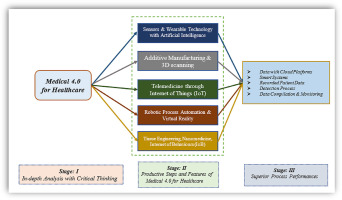
I have been lucky to work in various fields of medicine throughout my career. This has resulted in triple board certification in family medicine, palliative medicine, and addiction medicine. I am fluent in Spanish, have an impeccable record, and have committed my career to serving underserved patients.
Nevertheless, after years of applying to esteemed health systems in a major city, I have never once been contacted for an interview in addiction medicine, which is my primary focus. Not even for less prestigious clinical roles.
I am not underqualified. These positions are in high-demand specialties where institutions claim to struggle to recruit. Yet, the roles consistently go to other physicians—often with fewer qualifications and less experience. Some trained in academic institutions, yes, but many did not. They merely fit the image expected by these systems.
In the meantime, someone like me—Latino, multilingual, with practical experience in addiction medicine—is ignored… and I am not alone.
The subtle sorting of who belongs
Academic hospitals in this city pride themselves on being progressive and inclusive. However, if you are a Latino physician, especially an IMG or someone trained outside of elite academic spheres, you are quietly funneled into a very limited range of roles: lower-paid, high-volume, “mission-driven” positions in community clinics or public hospitals.
If you aspire to leadership, academic positions, or even better-resourced outpatient settings, you’ll receive comments like, “You’re needed in the community,” or “You can make a bigger impact there.” I have been told this directly.
It’s framed as a compliment, but it is not. It is a boundary. It reflects the unexpressed belief that my place is not in decision-making roles, affluent areas, or within systems that equate prestige with whiteness and cultural neutrality.
Meanwhile, other physicians—often those who more closely align with the unspoken criteria of elite institutions—rapidly enter roles with visibility, voice, and influence. This isn’t about individual colleagues; it’s about a system that has established categories of professional belonging: those perceived as “universal,” and those considered relevant only to the underserved.
A recurring theme
One health system exemplifies this. In recent years, employees filed a federal discrimination lawsuit citing racism, sexism, and retaliation. An internal report later revealed that many physicians of color felt marginalized, under-promoted, and excluded from opportunities for advancement.
I have applied multiple times to positions at this institution—clinical, academic, addiction-related. These are roles for which I am objectively qualified, particularly in areas facing a spiraling overdose crisis. Still, I have never received a response. Not even a standard rejection.
Meanwhile, physicians with lesser qualifications take those same positions. The system asserts its commitment to equity. Yet the outcomes speak volumes.
Addiction medicine and the geography of prejudice
The bias extends beyond hiring. It also influences the availability of care—and who has access to different types of treatment.
Methadone clinics and MAT programs continue to be predominantly located in low-income, primarily Black and Latino neighborhoods. These are the areas where hospitals deploy their “community outreach” efforts, and where physicians of color are told they “belong.”
However, more prestigious hospital systems have quietly started instituting well-resourced outpatient addiction programs in wealthier, whiter areas of the city. These clinics feature shorter wait times, more cohesive care, and increased funding per patient.
The patients are distinct. The signage is subtler. The layout conveys, “You’re welcome here.” These programs do not replace those in historically underserved neighborhoods—but they communicate a message: Some individuals with addiction receive cutting-edge, discreet care. Others are relegated to overburdened clinics in neglected parts of the city.
It mirrors the same pattern seen in physician recruitment—just reflected outward.
Tired doesn’t equate to bitter—it signifies awareness.
None of this is rooted in personal bitterness. I have forged a meaningful career in addiction medicine. I’ve worked in jails, housing shelters, mobile clinics, and community health centers. I have witnessed how impactful it can be when patients connect with someone who comprehends their culture and language—never as a merely checklist item, but as a mutual experience.
However, I’ve also observed doors remaining shut for years—for me and many of my colleagues of color. I’ve noted what constitutes reward and what does not.
And when those closing those doors insist they are dedicated to equity, inclusion, and public health—well, that is when silence becomes its own version of dishonesty.
We are instructed to go where we are “most needed,” but that phrase has become a convenient method to exclude us from spaces with power, funding, and recognition.
After 15 years, I remain proud of the work I’ve accomplished. But I am also weary of feigning that the barriers do not exist.
They do. And they are greatly overdue for change.